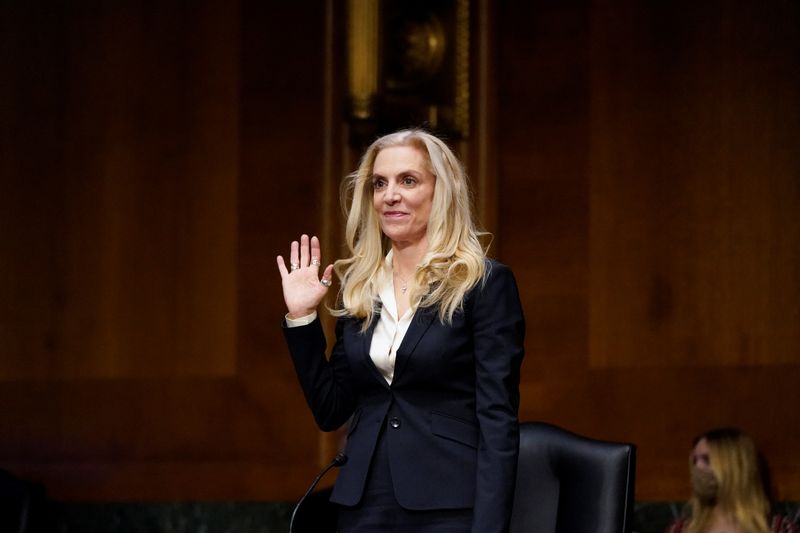(Reuters) - Creating an official digital version of the U.S. dollar could help ensure financial system stability as crypo-assets and digital currencies developed by other countries become increasingly popular, Federal Reserve Vice Chair Lael Brainard said on Wednesday.
"As we assess the future digital financial system, it is prudent to consider how to preserve ready public access to safe central bank money, perhaps through the digital analogue of the Federal Reserve's issuance of physical currency," Brainard said in testimony released in advance of her appearance on the issue before the U.S. House of Representatives Financial Services Committee on Thursday.
"We recognize there are risks of not acting, just as there are risks of acting," she said.
Fed policymakers remain divided on the need for a central bank digital currency (CBDC) and have just finished a three-month public consultation period soliciting feedback on the idea. The Fed has also indicated it would not launch one without clear support from the White House and lawmakers.
That puts it behind its other major global central bank peers, including the ECB, Bank of Japan and Bank of England, on the process of possible adoption. China is currently piloting its own CBDC and in total nine countries have launched one and another 87 countries are exploring the option, according to the Atlantic Council.
The risks of loosely-regulated cryptocurrencies and stablecoins, which exploded in value during the COVID-19 pandemic, have come into sharp focus with the crypto market slumping sharply this month after the downfall of major "stablecoin" terraUSD. Leading cryptocurrency Bitcoin has dropped more than 50% since November.
"These events underscore the need for clear regulatory guardrails to provide consumer and investor protection, protect financial stability, and ensure a level playing field for competition and innovation across the financial system," Brainard said.
Unlike cryptocurrencies, which are typically run by private actors, a CBDC would be issued and backed by the central bank. If the U.S. goes ahead with creating one, Brainard said, it ought to be designed so that commercial banks, given their centrality to the financial system, are not disintermediated, by for instance limiting the amount an individual could hold or transfer.

Brainard also argued a U.S. CBDC could safeguard the dollar's global importance.
Other Fed policymakers, including Fed Governor Christopher Waller, are more skeptical and point out that many dollar transactions are already digital, and have also raised privacy concerns.